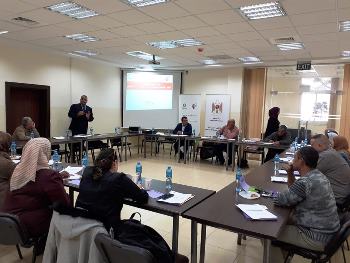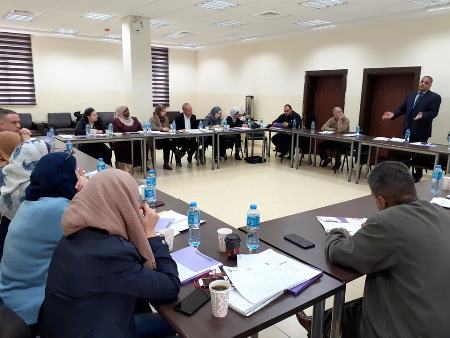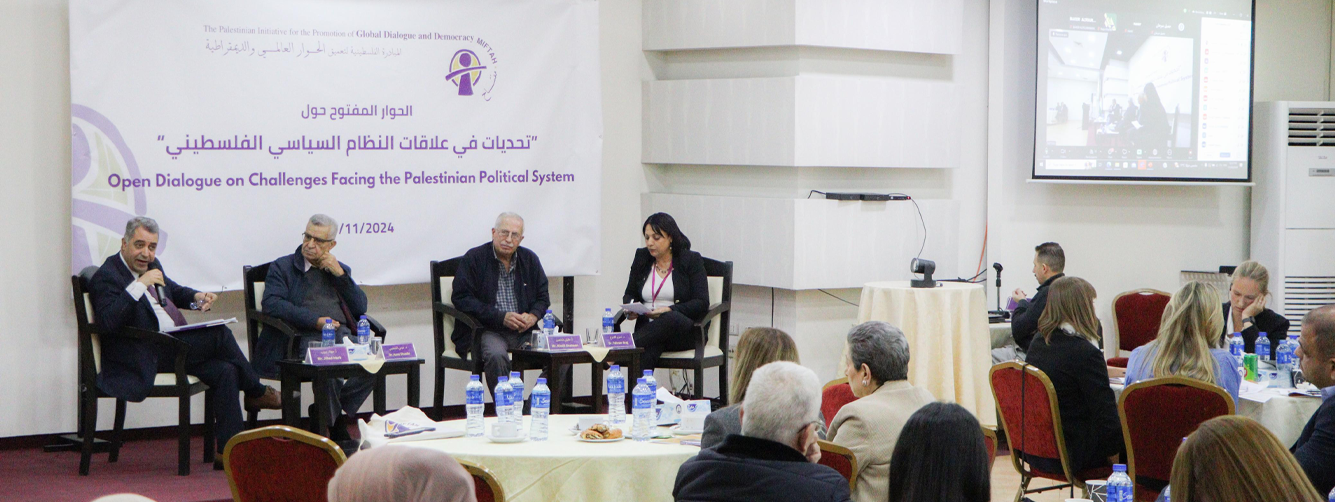
Ramallah – On November 27, MIFTAH completed a series of training workshops on the conceptual framework for public and participatory budgets, which targeted members of the joint planning councils in the following districts: Jericho, Nablus, Hebron and Jerusalem. The workshops are part of the ongoing cooperation between MIFTAH and the Ministry of Social Development, aimed at promoting the participatory approach and principles of transparency and accountability in the preparation of the Ministry’s budget.
Deputy assistant minister, Anwar Hamam thanked MIFTAH for its continuous support, which he said allowed the ministry to adopt mechanisms for promoting transparency in its budgets and for adopting the participatory approach in planning and preparing its budgets based on the needs of its beneficiaries. He said the ministry wanted to institutionalize cooperation between the ministry and the joint planning councils through these training workshops given that they include several institutions partnered with the ministry in every district. He also said the ministry wanted its planning operations to include representatives from various social sectors, namely women, the elderly, the disabled and youth.
Nisreen Manarious from the Princess Basma Center in Jerusalem said this was the first time there was space for developing a deeper understanding of participatory budgets. “As a center that works in the field of rehabilitation, we understand the importance of the participatory role between the ministry and institutions because it increases opportunities for our targeted sectors to obtain and access the best possible services.”
Hayat Zughayer from the Emleson Women’s Society in Jerusalem said the workshop offered added value in terms of information and tools. She said they did not have information regarding government spending and how to prepare public budgets. “Now there is an opportunity to benefit from all this since we are partners in the joint planning councils; we can shed light on the needs of women in Jerusalem and the specific circumstances and challenges they face because of Israel’s assault on all areas of life in the city. We need to prepare a paper that determines the priorities and needs of women in Jerusalem and which corresponds with the ministry’s plan for preparing its budget, especially in regards to the policies of protection and integration of women.
MIFTAH and the ministry both seek to build the capacities of members of the joint planning councils in West Bank districts and provide them with information and skills to promote their participation in monitoring the needs of local communities in accordance with the exclusivity of each district. They also seek to support the ministry in translating their reconsideration of a services-oriented approach instead of an assistance-based one, through a shift towards adopting developmental instead of relief policies and to overcome the challenges that threaten the developmental approach imposed by the reality of living under occupation.
The training workshops reflect the importance of the integrative role with official institutions, particularly the Ministry of Social Development given its pioneer role in providing spaces for the participation of citizens and their representatives to guarantee the integration of their needs in the planning process and in developing fiscal policies in line with the ministry’s role in adopting policies to promote social protection for every Palestinian citizen, especially those most vulnerable and marginalized.
The workshops are part of a series of qualitative interventions implemented by MIFTAH in partnership with the Ministry of Social Development within the course of strategic action towards the institutionalization of the participatory approach and the principles of good governance and social justice, aimed at developing and implementing fiscal policies that serve the public good. MIFTAH’s interventions are part of its OXFAM-funded project, “Finance for Development”.










